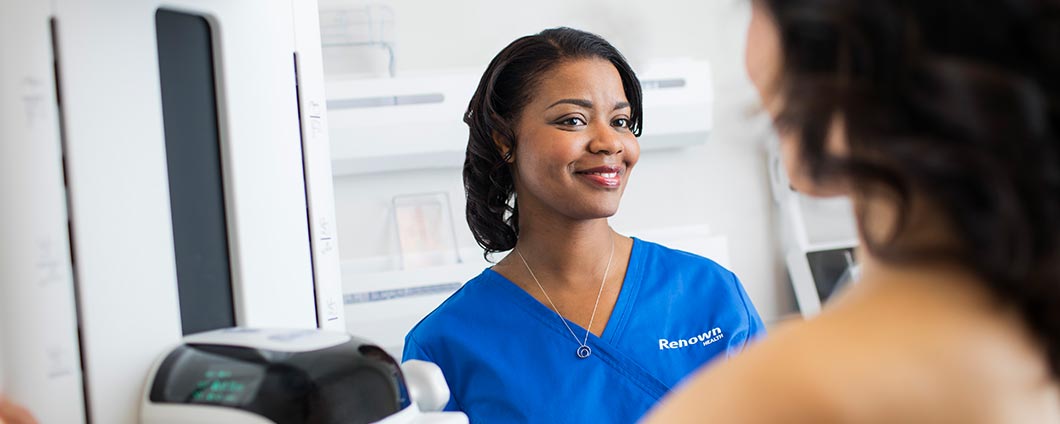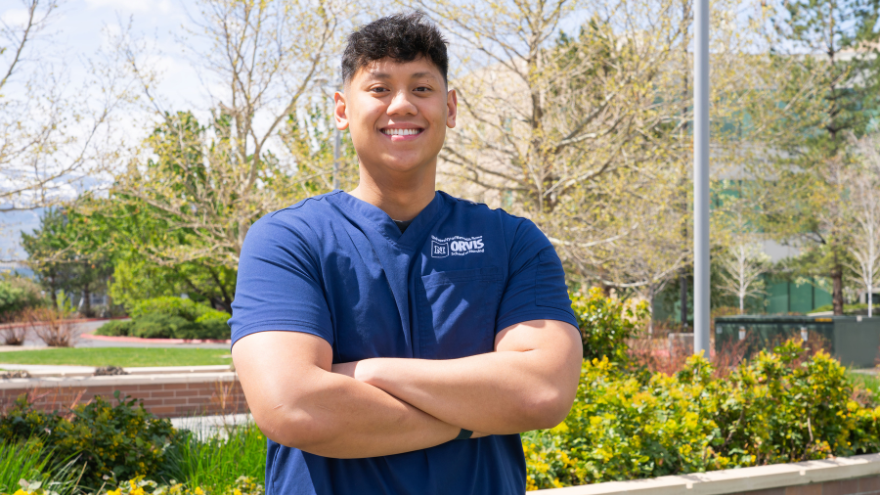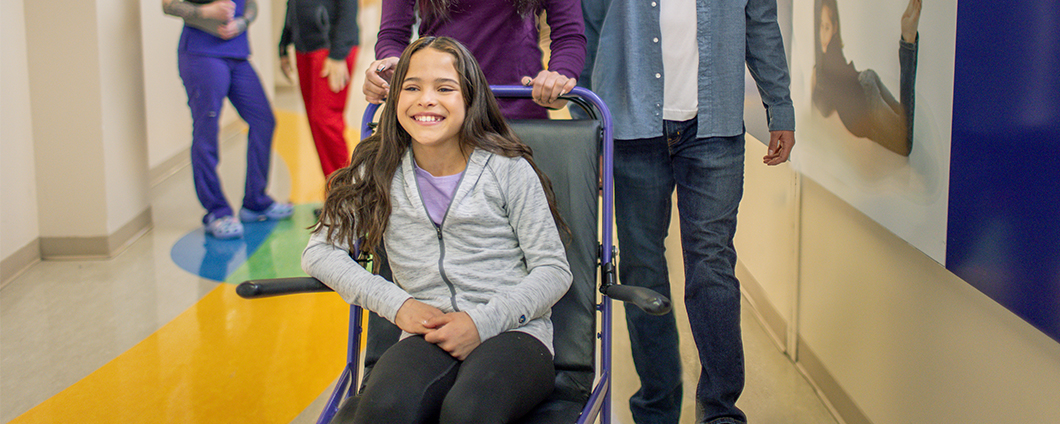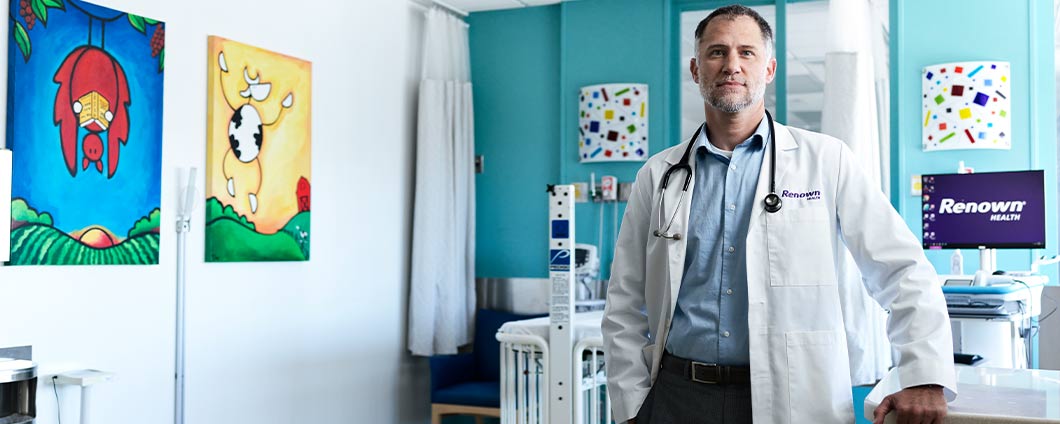Search
Results for 'what is an'
Clear-
Low Salt, Big Flavor! Spicy Oven-Fried Chicken
Looking for a low-sodium recipe that delivers high marks for taste? Try this Heart Association-approved recipe for oven fried chicken. Diets high in sodium can increase blood pressure, putting you at greater risk for stroke. But you don’t have to trade taste for better health. Take this recipe from the American Heart and Stroke Association: With spicy cayenne, tangy dry mustard and smoky paprika, you won’t miss the salt in this lightened-up southern classic.
Read More About Low Salt, Big Flavor! Spicy Oven-Fried Chicken
-
Meatless Monday: Easy Gluten-Free Cauliflower Crust Pizza
Research shows that plant-based diets can help manage and even aid in the prevention of many chronic conditions such as diabetes, heart disease and cancer. Try incorporating more plant-based and meatless recipes into your diet — even if it’s just once a week. Here’s a delicious and easy pizza recipe to get you started. Cauliflower is finally getting its due. This nutritional powerhouse of a veggie is flying off the shelves as a low-carbohydrate substitute for grains and legumes. Why? The seemingly boring, white veggie is rich in antioxidants, nutrients, fiber and weighs in at just 25 calories per cup. And it’s great at camouflaging as rice, or in this case, as a base for pizza crust.
Read More About Meatless Monday: Easy Gluten-Free Cauliflower Crust Pizza
-
Lighten Up With Healthy Shrimp Avocado Spring Rolls
The longer days of spring bring us more daylight and more hours to enjoy the sun. At dinnertime, we’re craving something lighter than the heavy stews and dishes of winter. Lighten up your palate for spring and usher in the new season — without sacrificing taste — with these do-it-yourself spring rolls. And with no cooking required, kids can roll up their sleeves and easily join the fun.
Read More About Lighten Up With Healthy Shrimp Avocado Spring Rolls
-
Cancer Screening & Prevention
Early detection plays a crucial role in effectively managing cancer. By undergoing regular cancer screening tests, you can identify the presence of cancerous cells or tumors even before symptoms manifest. It provides an opportunity for timely intervention and increases the chances of successful treatment and recovery. At the William N. Pennington Cancer Institute, your care team is essential in determining which screenings are most appropriate for you and your family based on your medical history, age, and risk factors. They can guide you through the various screening options available and address any concerns or questions you may have. Cancer screening tests encompass a range of examinations, including imaging techniques such as X-rays, CT scans, MRI scans, as well as specific tests like mammograms, Pap smears, colonoscopies, and prostate-specific antigen (PSA) tests. These screenings aim to detect breast, lung, prostate, colorectal, cervical, and other types of cancers. By prioritizing cancer screenings and preventive measures, you take an active role in safeguarding your health. Detecting cancer early significantly increases the chances of successful treatment and improves overall outcomes. Prevention Cancer prevention is a vital aspect of maintaining overall health and well-being. One significant preventive measure is the administration of HPV (human papillomavirus) vaccines. HPV is a common sexually transmitted infection that can lead to several types of cancers, including cervical, vaginal, vulvar, anal, penile, and oropharyngeal cancers. HPV vaccines are designed to protect against high-risk HPV strains responsible for the majority of these infections. By getting vaccinated, individuals can significantly reduce their risk of developing HPV-related cancers. These vaccines are most effective when administered before exposure to the virus through sexual activity. Therefore, early vaccination, ideally during adolescence or early adulthood, is crucial for long-term protection. By prioritizing HPV vaccination as part of comprehensive cancer prevention strategies, individuals can take proactive steps towards reducing the risk of these preventable cancers.
-
Nourishing Your Loved One Through Cancer Treatment
Eating healthy is a daily challenge for many, but for those with cancer, it is an even harder struggle. A cancer diagnosis affects not only those diagnosed but family members and friends, too. One key area of concern is making sure your loved one stays well by eating healthy food every day. Here are some vital cancer nutrition tips from Jessica Blauenstein, a Board Certified Specialist in Oncology Nutrition and Registered Dietitian at Renown Health. Help to Prepare Meals and Snacks for Daily Cancer Nutrition Make it grab and go. Easy-to-make meals help reduce the burden of having to cook and prepare food. Having easy to grab snacks on the counter or in the fridge can help ensure your loved one has access to those nutrients when needed. Sit outside of the kitchen. This allows your loved one to avoid cooking smells which can make them feel sick as a side effect of cancer treatments. Also try serving them cold foods such as sandwiches, cheese and crackers, or shakes which have a mild scent. Try drinkable meals. Some people with cancer find it easier to sip their calories over the course of 30 minutes to an hour. Consider smoothies or supplemental shakes such as Ensure Complete, Fairlife shakes, Orgain shakes, or Boost Plus to name a few. A great foundation for a smoothie is a protein source (Greek yogurt, protein powder, nut butters or milk) with a carbohydrate (fruits, juice or berries). Add other ingredients as desired, such as spinach, kale, and ground flaxseed or chia seeds to give it more vitamins, minerals, and fiber. Snack Ideas for Those Undergoing Cancer Treatment The following ideas are both quick and easy to make for your loved one. Chicken or tuna salad with whole grain crackers or as a sandwich on whole grain bread Greek yogurt mixed with cereal, fruit and/or nuts Cottage cheese with banana, cinnamon and/or peanut butter Favorite fruit with 100% natural peanut or almond butter spread - Try peanut butter with bananas, apples, or even celery Their favorite veggies dipped in a salad dressing of your choice - For example, carrots with hummus, tahini, or ranch dressing Cheese and whole grain crackers - Add tomato slices with a small amount of avocado, and a dash of oregano on top for more flavor Eggs scrambled with cheese, vegetables and/or salsa Peanut butter and jelly sandwich on whole grain bread A baked sweet potato with some favorite toppings Hard boiled eggs and/or egg salad with whole grain crackers, or as a sandwich on whole grain bread Oatmeal or cream of wheat prepared with milk, fruit and/or nuts Sometimes your loved one may not feel like eating or refuse to eat. If treatment side effects are impacting your loved one’s ability to eat, please visit the websites below containing recipes tailored to treat side effects. Cook for Your Life ELLICSR Of course, you may also consult a registered dietitian and/or the patients care team, if you have more cancer nutrition concerns.
Read More About Nourishing Your Loved One Through Cancer Treatment
-
Meet Future Renown Nurse Jeromy Hughes
When Jeromy Hughes became one of the 29 nursing students accepted into the first Gerald “Jerry” Smith Academic-Practice Partnership cohort, he almost couldn’t believe it. Life as both an Orvis School of Nursing student and a future nurse in our community was about to change. Not only was he about to receive full tuition support, but he also was set up for a guaranteed start to his career as a nurse at Renown Health. The Academic-Practice Partnership was named in honor of Jerry Smith of the Nell J. Redfield Foundation. Supported by a generous gift from the Redfield Foundation and Stephanie Kruse, Foundation Board Director, the goal of this partnership is to help foster a lasting nursing workforce in northern Nevada, with nurses like Jeromy leading the charge. From the Courtside to the Bedside Jeromy grew up playing basketball in his hometown of Las Vegas and was on the team at Bishop Gorman High School. His talent resulted in a scholarship to play basketball for Wenatchee Valley College in Washington, which would put him on a trajectory to play professionally – even though nursing was always in the back of his mind. Jeromy received a unique opportunity to play for De La Salle University in the Philippines, and with much excitement, he set off across the world. Then, the COVID-19 pandemic hit. When the world shut down, Jeromy had no choice but to stay in the Philippines, waiting to return to the Silver State. Three months later, he flew home to Las Vegas. In those moments, Jeromy’s entire mindset shifted. A career in nursing was no longer in the back of his mind; it came right to the forefront. With a plan to now stay in-state, he set off to attend the University of Nevada, Reno (UNR). “My whole family is involved in the healthcare field, and I’ve always been surrounded by healthcare in some way,” said Jeromy. “My parents own an elder care facility, my dad is a respiratory therapist in Las Vegas and my grandparents own a hospice facility down in southern California. My grandma was also a nurse for more than 50 years, and throughout her career, she worked in labor and delivery, psychiatry and medical-surgical units. I’ve always wanted to help people like my family has, and nursing resonated with me the most out of every option.”
-
Adolescent Intensive Outpatient Program
The journey through adolescence is not without its challenges, particularly when it comes to mental health. At Stacie Mathewson Behavioral Health & Addiction Institute, we recognize the unique struggles faced by teenagers today, including depression, anxiety and suicidal thoughts. These issues signal a critical need for accessible, effective support and care. The Adolescent Intensive Outpatient Program runs after school three days a week for five weeks, allowing for a balanced yet intensive approach to recovery.
-
TMS Therapy
Renown Health is enhancing mental health services in northern Nevada through the Stacie Mathewson Behavioral Health & Addiction Institute, offering repetitive transcranial magnetic stimulation (rTMS) therapy for Major Depressive Disorder (MDD). This non-invasive and non-systemic treatment uses magnetic fields to stimulate nerve cells in the brain, targeting areas involved in mood control. It is typically employed when other treatments have failed. The therapy, cleared by the FDA and commonly covered by insurance, involves sessions lasting between 18-30 minutes over seven weeks, conducted under a psychiatrist's supervision. The procedure, performed while patients are awake in a comfortable setting, may initially cause minor discomfort. Contact the institute directly for more details or to refer a patient.
-
Pediatric Care
It's both a joy and an incredible responsibility to care for your child. Our pediatric care specialists look forward to working with you as a team to provide the highest level of pediatric health care from birth — and beyond. Our family-centered care approach gives you an active role alongside our specialists to deliver the best possible care and outcome for your child.
-
Renown Children's Oncology & Hematology
Renown Health is the only pediatric cancer and hematology program in northern Nevada. We provide inpatient chemotherapy and outpatient infusion services on-site, as well as consultations and management for non-malignant hematologic conditions. As a member of Children’s Oncology Group, Renown is proud to offer our youngest patients quality care close to home. This membership gives local pediatric cancer patients access to the world’s largest organization devoted exclusively to childhood cancer and most leading-edge treatments.
-
Palliative Care
Serious Illness Care - Delivered Directly to Your Home At Renown Health, our team of palliative care providers are here to provide clinical support and compassionate guidance for patients with chronic and life-limiting illnesses. Palliative Care is a consultative service that can be used at any time in the disease process. Patients can continue to see their providers and receive treatment (such as chemotherapy or dialysis) while on Palliative Care service. Our nurse practitioners will come to your home to discuss your individual needs and concerns. We work closely with your other providers and care teams such as primary care, oncology, and home health to ensure you receive the best care possible.










